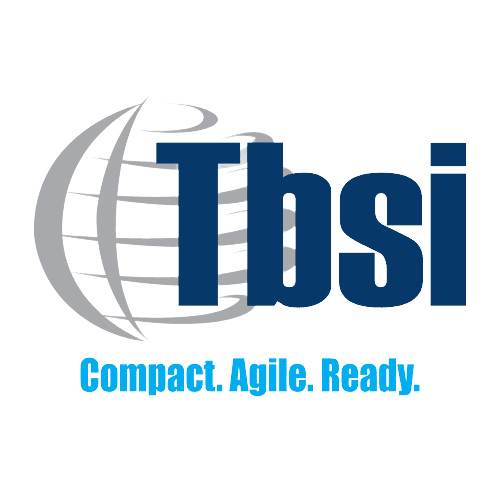Supply Chain Management for Steel Fabrications
Leave a CommentThe steel industry’s reliance on intricate supply chains demands precision management beyond routine oversight. It is a strategic prerequisite that balances efficiency and resilience while relying on data and analytics proficiency. Every stage requires a synchronization that eliminates bottlenecks and minimizes disruptions, from raw material procurement to manufacturing processes and distribution.Delays or discrepancies at any point in the chain can cause production slowdowns and missed deadlines.
This article delves into the critical role of resilient supply chains in the steel industry. It also discusses how supply chain management ensures operational efficiency and adaptability, drawing insights from various disruptions and uncertainties.
The Importance of Resilient Steel Supply Chains
Given the array of potential disruptions it can face, resilient supply chains are indispensable for the steel industry. One significant threat comes from natural disasters, including fires, hurricanes, earthquakes, and severe weather events. These calamities can wreak havoc on transportation infrastructure and damage manufacturing facilities, causing significant disruptions in the steel supply chain.
Geopolitical tensions pose another challenge. Trade disputes and policy shifts can impact the availability of raw materials required for steel production. Sudden restrictions or tariffs can lead to supply shortages, affecting the industry’s production capacity and cost structure. To mitigate these risks, the steel sector must diversify its sources of raw materials and stay informed about geopolitical developments.
Furthermore, market fluctuations are a constant challenge for steel manufacturers. Rapid shifts in market demand can necessitate quick adjustments in production volume and product mix. Resilient supply chain management involves having the agility to respond to these fluctuations efficiently through flexible production processes and demand forecasting capabilities.
In addition to the mentioned challenges, factory or supplier closures and failures can disrupt the supply chain. This can delay production and affect product quality. Machine downtimes or line down situations can also halt operations, emphasizing the need for contingency plans. Lastly, the steel industry often operates with complex and specialized supply chains. This complexity can introduce vulnerabilities.
The lockdown-induced economic recession further challenged the steel industry, especially concerning supply routes. COVID-19-related policies that disrupted regular business operations heavily affected resource availability and demand patterns. This shifting landscape, marked by halting re-openings and closures, has ushered in an unusual ‘new normal.’ As the country dealt with a fluctuating trajectory, steel supply chain management dynamics showed the adaptability required to thrive in uncertain times.
Key Roles of Supply Chain Management in Steel Fabrication
Supply chain management is critical in the steel fabrication industry. The following are the primary roles that supply chain management fulfills in this sector:
Material Sourcing and Procurement
Material sourcing and procurement involve identifying reliable suppliers, negotiating terms, and maintaining a steady flow of high-quality raw materials. Effective procurement strategies directly influence cost management and the quality of the end product. This makes them pivotal for a successful and efficient steel fabrication process.
Supplier Relationship Management
Building trusting relationships with suppliers is critical for a smooth and efficient steel fabrication supply chain. Businesses may ensure competitive pricing, timely deliveries, and enhanced dependability from their suppliers by prioritizing clear communication and regular improvement initiatives.
Steel Demand Forecasting and Planning
Businesses can anticipate future steel requirements by analyzing market trends, customer needs, and production capacities. This proactive approach allows for optimized scheduling, efficient resource allocation, and effective inventory management. It also ensures that the right amount of steel is available to meet customer demands while minimizing costs and avoiding overstocking.
Inventory Control and Management
Striking the balance between inventory levels helps avoid costly issues like overstocking or stockouts. Supply chain managers closely monitor inventory levels, employ refilling strategies based on demand patterns, and implement efficient storage and distribution methods.
Quality Assurance and Compliance
Supply chain professionals often collaborate with quality control teams to oversee whether or not their fabricated steel components adhere to industry standards. Thorough quality checks, testing procedures, and continuous compliance monitoring are key to maintaining the integrity and reliability of the final products.
Logistics and Transportation
Efficient management of the transfer of raw materials, semi-finished products, and final goods requires well-planned coordination. Strategic choices regarding transportation methods, optimal routes, and precise scheduling influence cost-effectiveness and ensure timely deliveries. These approaches help to improve supply chain efficiency and consumer satisfaction.
Risk Management and Resilience
Supply chain managers proactively identify and address potential disruptions, ranging from supplier challenges to market volatility or unforeseen incidents. By creating and implementing contingency plans and risk mitigation strategies, businesses enhance their ability to navigate uncertainties. This helps maintain operational continuity while minimizing negative effects on fabricating steel supply chains.
TBSI: Your Trusted Supply Chain Partner for Steel Components and Fabrication Services
At TBSI, we deliver steel components and fabrications of unparalleled quality, consistently exceeding customer expectations.Our products undergo meticulous quality control measures to meet the most stringent industry standards and exacting specifications. We also offer advanced coating services, including powder coating, liquid painting, and plating.
Contact us today for more information! You can also request a quote now.
